The Music of Friendship: Disputed Memories Surrounding the Discovery of a Master Audio Plumber
Remembering and Misremembering Steve Albini and The Friendly Audio Ghosts of Past, Present and Future
With Guest Contributor Jeff Hege.
…I'm not at all qualified to eulogize Albini; I know very little about him. He was always a mythical figure to me. In name only. I loved the heavyweight albums that he produced. But I never familiarized myself with Big Black, Shellac, or Rapeman. I'm learning a great deal more about him now, in the many remembrances online.
Although the above statement is pretty much exactly how I might have fired the opening salvo of my own tribute to Steve Albini, these are not my words at all but rather those of my dear friend of over three decades Jeff Hege, with whom I share the byline on this installment. After digesting Albini’s shockingly unexpected passing at age 61 early this week, I reached out to Jeff via text to let him know I had been thinking of him since hearing the sad news, as Jeff was the one who first put Albini and his production work for the Drag City record label on my radar back in 1993 and I always thought of Jeff when I thought of Steve Albini. Jeff responded that he was still processing the passing of Gary Floyd, and I responded with an invitation:
I wrote a little tribute to Gary in the latest post. Getting tired of the obit business but feel like I have to honor certain people if I'm gonna do a blogthing.🤮 I have a mission for you if you choose to accept it. If you'd care to write up a short piece on your Albini experience I'll post it as a guest piece on Thee Vangarde. Just an offer; totally up to you so don't feel pressured. I would need it by sometime next week. My goal with this literary endeavor has always been to get other like minded individuals to contribute to it (as I've stated several times on the blog) but I can't get anyone to bite. Either way, let's catch up soon. I never listened to the bands he was actually in either; I was thinking more about all the great bands he worked with. Thought it might be fun for you to rhapsodize about some of your favorite Drag City records, etc. I think you've already written the opening paragraph above!😄
Let me know if you ever want to contribute in the future.
I should provide a bit of context at this point. I spent half of my Navy years (1993-1997) at sea and abroad, but when my ship the USS Stout was in home port I lived in Florida and Mississippi for a while, but mostly in beautiful Norfolk, Virginia. Jeff was the bartender at my favorite gin joint there (the fried calamari at The Taphouse was the best I have ever had) and we almost immediately fell into mad platonic heterosexual love and became inseparable. I had never had a friendship like the one I shared with Jeff and have not since. It was passionate and intense and blissful. We loved the same bands, books, movies, shared the same tastes in the good things of life. During my on-again, off-again time in Norfolk, I pretty much lived a bohemian existence in Jeff’s wonderful apartment near the Ghent arts district; his girlfriend Amy lived downstairs and was around a lot and some of their friends and my shipmates often joined the mad party at his pad as well. Many were the times Jeff and I closed the bars and stayed up all night talking, drinking, listening to music…
There was a great old art cinema nearby called the Naro which we frequented; together we first saw new releases there like Larry Clarke’s Kids, David Lynch’s Lost Highway, Tim Burton’s Ed Wood, and Jim Jarmusch’s Dead Man in addition to a lot of classic foreign cinema. We also rented VHS tapes at the local video store around the corner and Jeff exposed me to certain films that would become lifelong favorites, John Sayles’ Matewan and Alan Taylor’s Palookaville among them. We attended punk gigs and went on road trips together and he taught me to surf at Virginia Beach. We bought each other books and CDs and we shared our poetry with one another and he wrote me great letters and sent me packages during my long months at sea (at least one included a marijuana cigarette). The friendship continued after I returned to civilian life, with Jeff and I meeting up in New York in 1999 to see Lou Reed play at the Knitting Factory. That was the last time we were in the same physical space together.
As much as we shared in common, Jeff consistently turned me on to things I had yet to discover, and this was particularly the case with MUSIC. For example, Jeff first hipped me to Portastatic, Richard Buckner, Superchunk, Vic Chesnutt, Liz Phair, Squirrel Nut Zippers, Archers of Loaf, Smog, The Candy Snatchers, Lambchop, and a fair amount of the music I first began listening to in the middle-1990s, often making me cassettes of his favorite music and expanding my meagre knowledge of essential acts like Beastie Boys, The Mekons, Yo La Tengo and The Replacements in the bargain (A native of North Carolina, Jeff was particularly well-versed in the vibrant music scene of Chapel Hill). And it was Jeff who without doubt first introduced me to the world of Will Oldham, both as a prodigious young actor playing the mystical child preacher and coal miner in Sayles’ Matewan and as an otherworldly musical act under his various Palace monikers. I was completely blown away by the Palace records and fascinated by Oldham; the albums seemed to be companion pieces to the Sayles film in a weird way, unfolding in the same haunted Appalachian dreamscape. The vocals were beautiful and unsettling; it was impossible to tell if they were sung by a young child of indeterminate gender or a very old man. The lyrics were surreal and poetic, both pagan and Christian in the same breath, and the primitive cover art featured strange Narnia-like beasts. Taken as a whole, the Palace package was something closer to conceptual art than mere musical recordings.
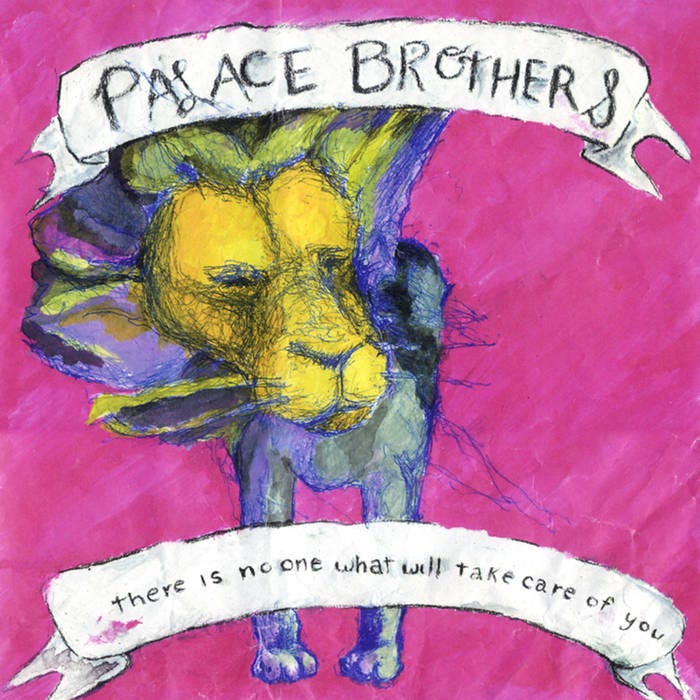
Adding to the exquisite mystery of both Oldham and his sometime-producer/ recordist/engineer Steve Albini in particular, and Drag City records in general, some of the CDs didn’t include any liner notes whatsoever; you didn’t know who was playing the music much less capturing it in some makeshift studio. The Albini-produced Oldham album Arise Therefore didn’t even have an artist credited on the cover; you just had to be curious enough to figure out what exactly it was. Secret missives. As far as the music itself, I couldn’t quite find a genre to fit such beautiful and unsettling lo-fi sounds into, much less explain their incomprehensible brilliance to anyone. It was rather experimental music for certain. It was damaged country & western and fractured bluegrass and failed folk. Lost tracks by John Jacobs Niles perhaps or unearthed Alan Lomax field recordings, a new volume of Harry Smith’s Anthology of American Folk Music by way of post-punk, grunge-era stoner rock and goth with random blasts of heavy metal sometimes thrown into the old weird Americana mix. What the hell was it? At one point I described the Palace-Albini sound to a friend as “kind of a hillbilly Nirvana” but that wasn’t accurate in the least; it was just a shorthand way to convey some general idea (Will was a better and far more original songwriter than Kurt Cobain for one thing. There, I have said it.). The stuff consumed my imagination and Oldham became the artist I listened to the very most for many years after, as he consistently released several discs a year. (I wrote a little about Jeff bringing me into Oldham’s rich musical cosmology here).
I asked Jeff many many questions about Oldham and he didn’t know a whole lot; in these earliest days of the internet Will remained an obscure underground artist cloaked in mystery. But one thing that did come up in our conversations was the weird record label the Palace records were on: Drag City. And a lot of stuff on that Chicago-based label was gearheaded by an already-legendary producer and engineer name of Steve Albini, who was revolutionizing the world of independent music and had worked on the Palace catalogue. From that moment on, I have forever associated both my love of Will Oldham’s music and the work of Steve Albini with my friend Jeff. In my head today, I can almost hear Jeff telling me the little he knew of Will Oldham, Albini’s career and the Drag City label in the halcyon days before instant information retrieval took the glorious mystery out of everything. So I was perplexed by the direction our new text exchange was taking. Was Jeff just being modest? Or was he putting me on? Or had he somehow simply if strangely forgotten that at one point he seemed to know as much about Steve Albini as anyone seemed to?
Very nice invitation. I owned a Drag City sampler CD, that's about the extent of my knowledge. I didn't even realize that Albini was connected to Drag City.
I must have a false vivid memory so sorry about that. I distinctly recall you telling me about Albini and Drag City when you turned me on to Will Oldham. That's crazy. Apologies for the randomness.
I learned about Palace via Rolling Stone mag, then tangentially Drag City. Got really into Will Oldham, as you know. Aided by his appearance in Matewan. Never delved into the other bands. In recent years, thanks to streaming, was able to embrace Silver Jews. A band that I love, Bully (artist rather: Alicia Bognanno) was a studio apprentice/protege of Albini. Which had awakened a newer interest in him.
Be that as it may or may not be, Jeff would have to agree that Steve Albini transformed our lives and played a large role in our developing friendship through his work with Oldham alone. Albini, the self-proclaimed “plumber” (rather than producer , engineer, or underground record mogul)1 provided much of the soundtrack of the last three decades of my life at any rate. Drag City seemed to show up in the early 90s about the time a lot of the older punk enthusiasts felt that Sub Pop and the like had grown too commercial and that the so-called grunge movement had become a marketing ploy that rather too conveniently appealed equally to braindead old hippies and aging punks alike but was failing to deliver the goods as the new voice of the American underground. There was something cult-like about the new label Drag City, a bit like the old SST records of the 1980s. The CDs felt hand-made, revolutionary, vital, decidedly punk rock.2 Drag City seemed a blast from our punk past and at the same time the future of music transported to the now. You would see some astonishing new band at a local club, Faun Fables for example, and become an instant lifelong fan, then a couple of years later they would show up on the Drag City roster. Beginning with Oldham’s Palace Brothers, Albini’s name showed up on the liner notes of many of the Drag City discs I bought over the years. For years I thought Albini actually owned and operated Drag City or at least was their in-house producer but I later learned he worked with a variety of labels and artists through the years.
If Drag City was the new SST, Steve Albini was our new Rick Rubin. By the time I became aware of Albini, I regarded Rubin as a once-exciting record producer who had sold his soul to the majors as the go-to producer for all things “indie” and “alternative”, then had quickly grown tiresome and self-important, consistently putting his own fame and prestige above the acts he was paid to serve (as Will Oldham once observed in an interview, something was very wrong in the world when a shady character like Rubin could repackage a living legend like Johnny Cash as some sort of punk icon and everyone bought into it). This was not the way Albini operated. He was forever in the business of capturing the acts he recorded at their most powerful and primal rather than trying to define or refine their sound for them. Unlike Rubin, Albini seemed to become famous and in demand somewhat unintentionally. I wouldn’t be surprised to learn that he never had a publicist. He became a household name among recording artists and music fans because of his work, because of the mind-boggling amount of production credits he received on an entire epic history of innovative recordings. Beginning in the late 1980s, the acts whose sound Albini captured comprise a litany of Saints for the alternative music crowd. I will only recite the ones I am a fan of, or once was, here (thanks for the assist, Wikipedia!) and I’m probably forgetting many more:
Will Oldham/Palace/Bonnie ‘Prince’ Billy, Iggy and the Stooges, PJ Harvey, Dirty Three, Manic Street Preachers, Tony Conrad, Scott Walker, Joanna Newsom, Jarvis Cocker, Sunn O))), Danielson Famile, Gogol Bordello, The Frames, Fugazi, Cat’s Eyes, Liturgy, Esben and the Witch, Om, Slint, Nirvana, Braniacs, Pussy Galore, Jesus Lizard, Pixies, Boss Hogg, Robbie Fulks, The Membranes, Flogging Molly, Neurosis, Low, John Spencer Blues Explosion, The Breeders, Meat Joy, Pigface, Superchunk, Whitehouse, Melt-Banana, Smog/Bill Callahan, Zao, Jimmy Page & Robert Plant…
This list doesn’t even scratch the surface of all the bands Albini “plumbed” for and doesn’t remotely convey the scope of his production career, which is likely impossible to fully catalogue. Who knows how many albums he worked on- well in the hundreds I would imagine- or the number of songs he recorded and mixed- likely in the thousands I presume. The above roster also doesn’t take into account the hundreds of acts- including many of my own personal favorites past and present like Wire, Jon Langford, David Berman/ Purple Mountains, JR Robinson/ Wrekmeister Harmonies, Glen Hansard, Mountain Goats, Bob Mould, Indian, Polyphonic Spree, Bully, Ty Segall, Local H, Liz Phair, Guided By Voices, Fucked Up, Black Eyed Snakes- that he indirectly oversaw the audio productions of at his Chicago studio Electrical Audio, which he founded in 1997 (He famously declined to accept any production royalties from artists for the use of the studio). All this while consistently fronting his own abrasive punky noise bands and putting out their records, which were laden with controversial lyrics and themes and catered to no one. Following the notorious audio assaults of his legendary post-hardcore/industrial outfits Big Black and Rapeman, he formed Shellac in 1992 and continued to play with and produce them until his untimely death (Oddly enough, Shellac’s new record is set to be released on May 17, exactly ten days after Albini’s passing). Although my knowledge of Albini is mostly restricted to his production credits, I was always aware that he was very much a beloved musician’s musician, as the many tributes from celebrity rockers online in the wake of his passing have attested. Shellac was even invited to curate the prestigious All Tomorrow’s Parties festival in both 2002 and 2012, a rare honor. Even so, Albini had started out as a highly-opinionated writer for punk zines, and he remained a constant presence in the music press, continuing to forge a side career of issuing controversial condemnations of the state of independent music over the years and taking the music industry as well as fans, friends and fellow DIY travelers like Sonic Youth, The Pixies, Liz Phair, Nirvana and the Dresden Dolls to task for sucking and/or supposedly selling out.
Although I never saw him play live, I met Steve Albini one time in Chicago; it was around 2006. Considering that he was once the leader of a band called Rapeman and once released an album called Songs about Fucking, the event at which we crossed paths seemed rather ironic to say the least: A screening of a new documentary on the alternative Christian rock scene at the Gene Siskel Theater. The film was called Why Should the Devil Have All the Good Music? and it happened to be co-directed by Albini’s wife Heather Whinna and Steve was among the interviewees in the documentary. Like so much of Albini’s work, the film opened up some new musical doors for me; I discovered a great band called Pedro the Lion that night as well as the amazing Danielson Famile, whose best album, Fetch the Compass Kids, was recorded by none other than Steve Albini as it turned out. After the movie, Steve moderated a discussion with the filmmakers and I approached him as the theater cleared out. Despite his curmudgeonly reputation for brutal honesty bordering on hostility and for not remotely suffering fools and for being something of an anxiety junkie, I found him very generous and pleasant, even gentlemanly. He patiently answered a few questions about some of his early Drag City recordings and didn’t seem to be in a big hurry to get away from me. He shook my hand and smiled when we parted. That’s what I think of when I think of the kind of person he must have been.
And then I think of Jeff Hege. It was during the period when I met Albini that I was living in northern Illinois and tried to hunt down Jeff in Chicago. Last I had heard, he was working at the legendary nightclub the Double Door in Wicker Park, but he had moved on and disappeared by the time I stopped in and asked about him there. So I was remembering all this and that great evening when I met Steve Albini as my latest virtual conversation with Jeff came to a close…
Am I free to use this discussion and name check you? I'll send you a draft for your approval before I publish. You've inspired an interesting line of thought about memory, associations, friendship, etc.
Of course you may! I'm curious to see how it is actually of value to you! I'm embarrassed by my Albini ignorance.
By the way, Jeff is just wrong. He also doesn’t remember me buying his Lou Reed ticket for him when we went to the Ecstasy show in New York. And he definitely told me all about Steve Albini and Drag City back in 1993.
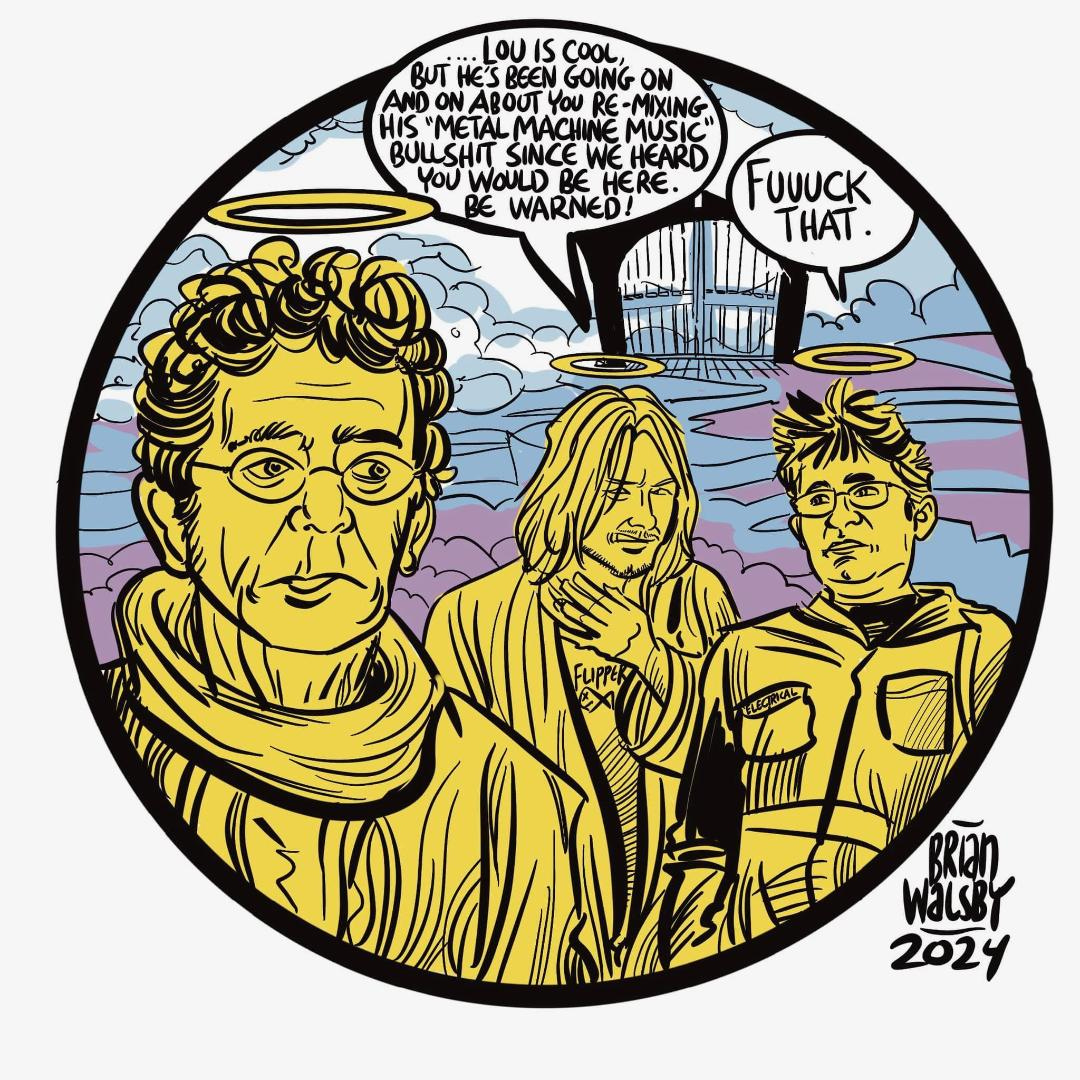
Other Friends We’ll Dearly Miss:
Dennis Thompson (1948-2024) has joined his brothers in the revolution and is now pounding the skins for the big MC5 reunion in the Hereafter.
Roger Corman (1926-2024): Little Shop of Horrors. A Bucket of Blood. Dementia 13. The Terror. Machine-Gun Kelly. The Wild Angels. The St. Valentine’s Day Massacre. Targets. Boxcar Bertha. Cockfighter. Caged Heat. The Trip. Bloody Mama. Death Race 2000. Fighting Mad. Deathsport. Grand Theft Auto. Piranha. Without Corman, no New Hollywood of the 1960s and 70s, period. The films Corman produced and/or directed during his B-movie heyday overcharged the imagination of this American boy growing up in the Middle East, and also taught me valuable lessons of DIY brilliance-on-a-budget long before punk rock affirmed the practice. And then he introduced me to The Ramones when I arrived back stateside. Glad I had the great honor to say hello to you and express my admiration one time, Mr. Corman. Repertory screenings of Roger's work are currently on the screens of all the drive-ins and grindhouses in Heaven.
https://kottke.org/13/09/steve-albinis-letter-to-nirvana
I assume Drag City was likely putting out both vinyl and cassettes of their early releases at this time, but I had recently made the switch to CDs shortly after I shipped out with the Navy. I continued to buy cassettes for a while but vinyl records were put on hold because CDs were the new format and, well, I lived on a ship didn’t I?

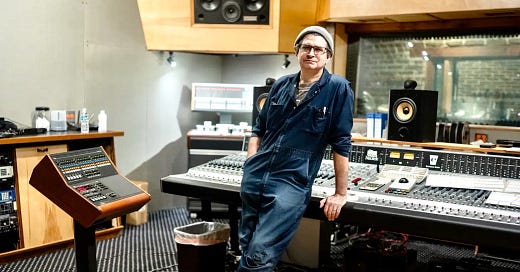



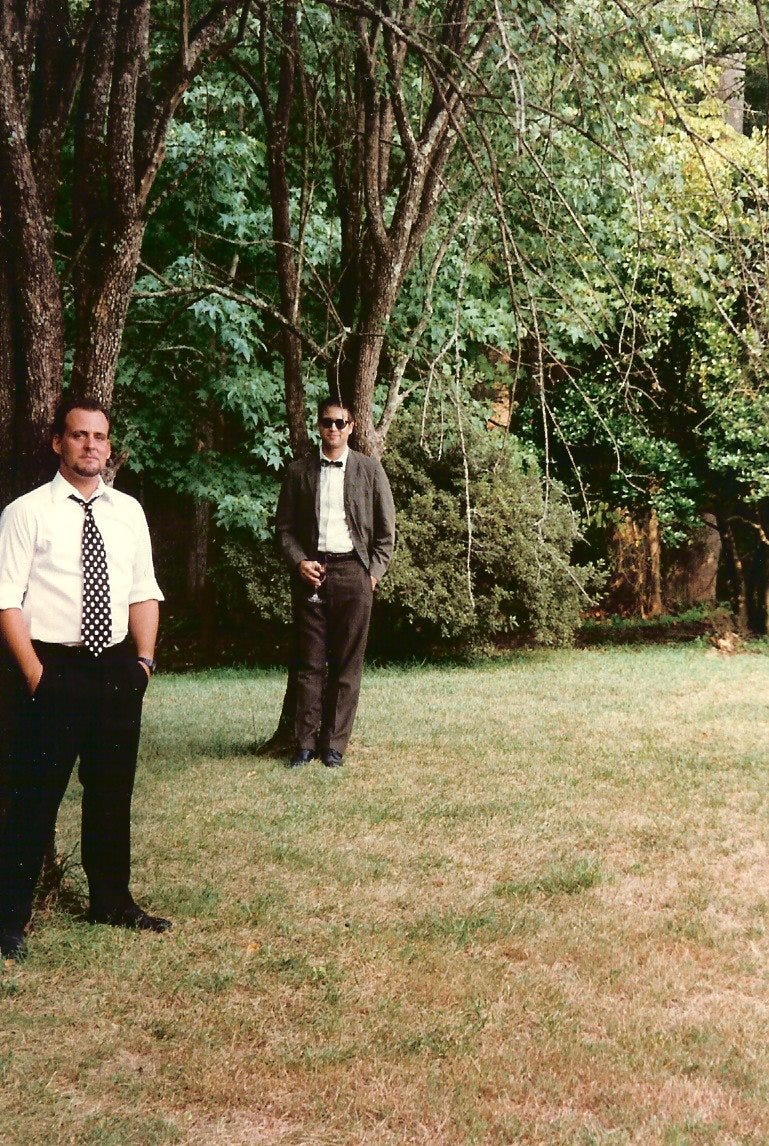
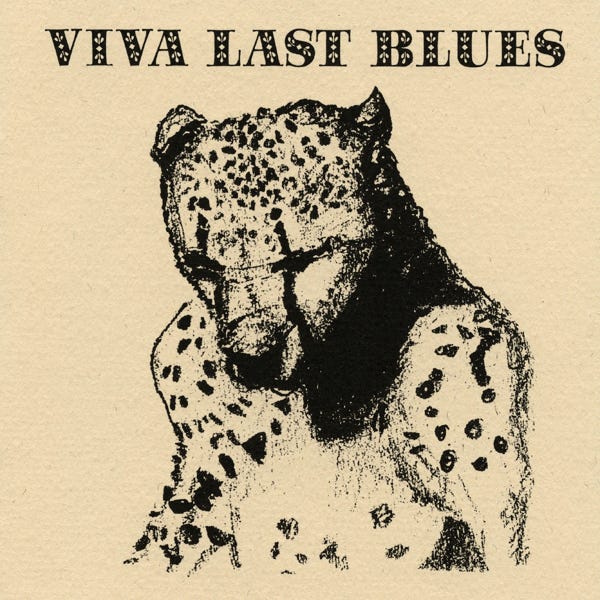
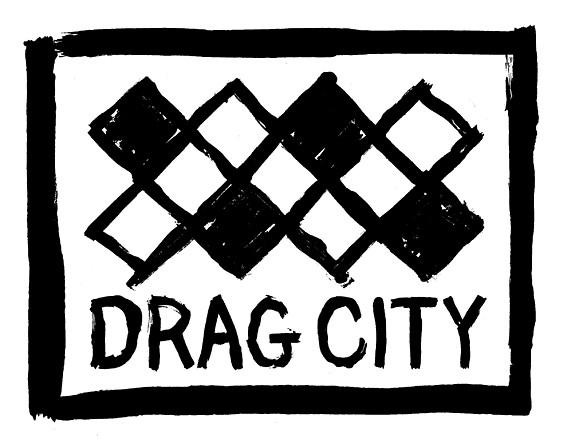
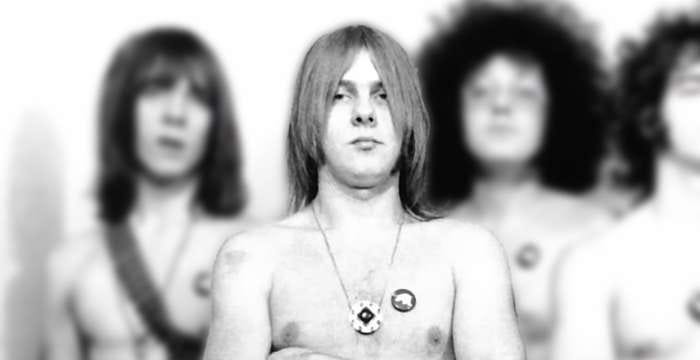
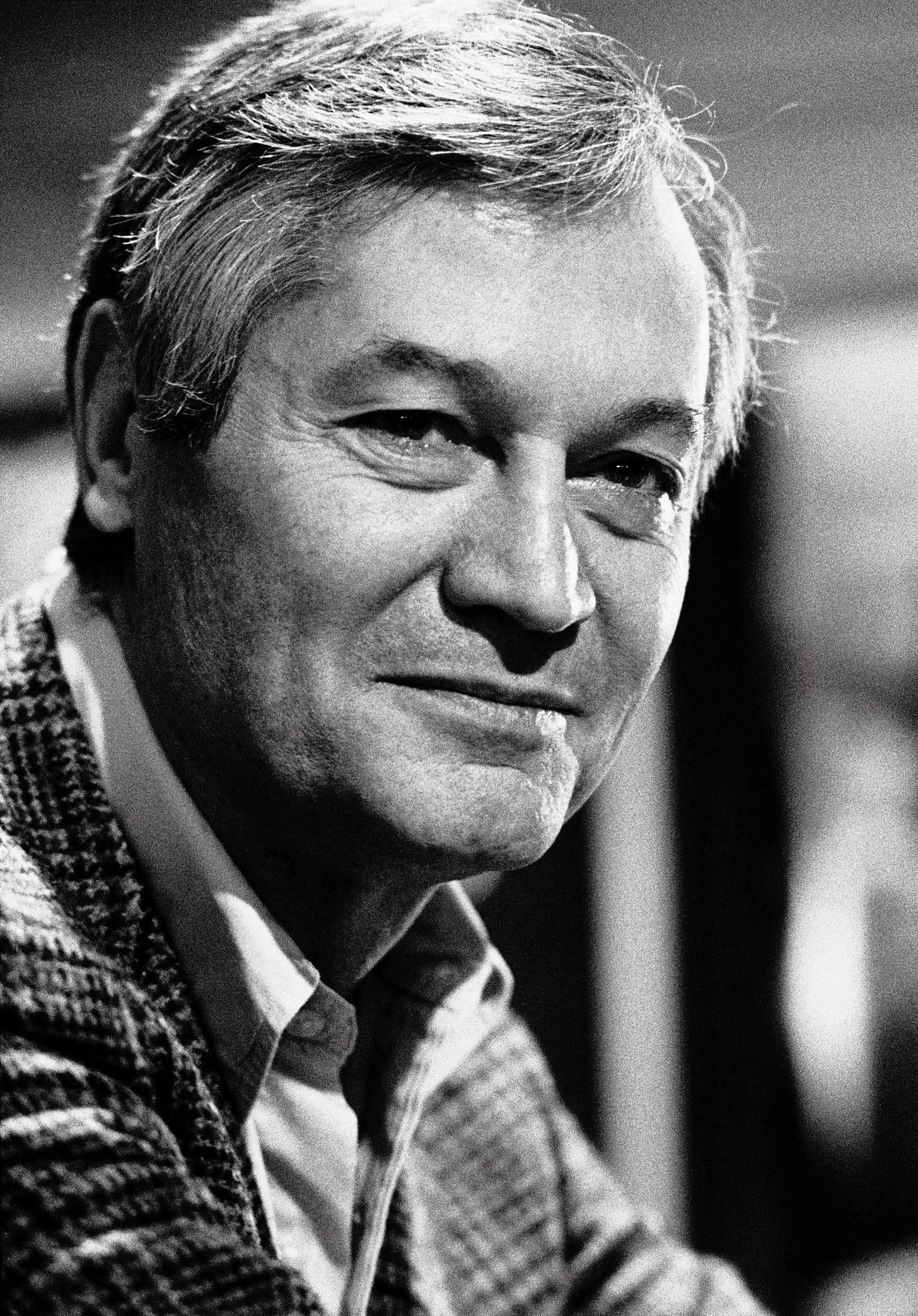
Interesting and well written